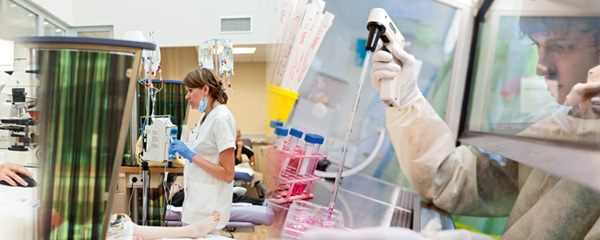Fundamental research (or academic research) is “experimental or theoretical works mainly performed to obtain new knowledge on the basics of observable phenomena or facts, without prior consideration that it will result in any practical application or use”.
Therefore the main objective of fundamental research is to understand natural phenomena and to formulate theories and explanatory models. There is no finality of short-term application intended for financial exploitation: it “creates” knowledge, it explains, and it formulates theories.
More information
As for applied research, it focuses on the development of new "objects" such as software, vaccines, drugs, etc.). It also covers the optimisation of already existing techniques and processes or their adaptation to new standards or new commercial opportunities (e.g. cell phones, thermal insulation, engine performance, medical analysis processes, etc.). Although applied research often results in significant advances, truly innovative discoveries and major improvements in terms of technical performance most frequently stem from fundamental research.
The distinction between fundamental and applied research is difficult to define. Many projects in fact are carried out at the interface between them. A large number of ground-breaking innovations have been developed in the framework of fundamental research and would not have been possible in that of applied research. A good example is lasers: the scientific principle of the laser was described by Einstein in 1917, while the first industrial application dates from 1967 (penetration). Since then many other applications covering a wide range of uses have been developed (optical discs, welding and, for example, in medicine for eye surgery to cure myopia and cataracts). Thus the practical application of many fundamental discoveries may occur many years later.
It is not enough to observe a fact. The genius of certain researchers lies in the their capacity to observe, be astonished, link the facts together, extrapolate, question and put themselves into question, experiment and, lastly, explain.
See also
- translational research
- clinical research

